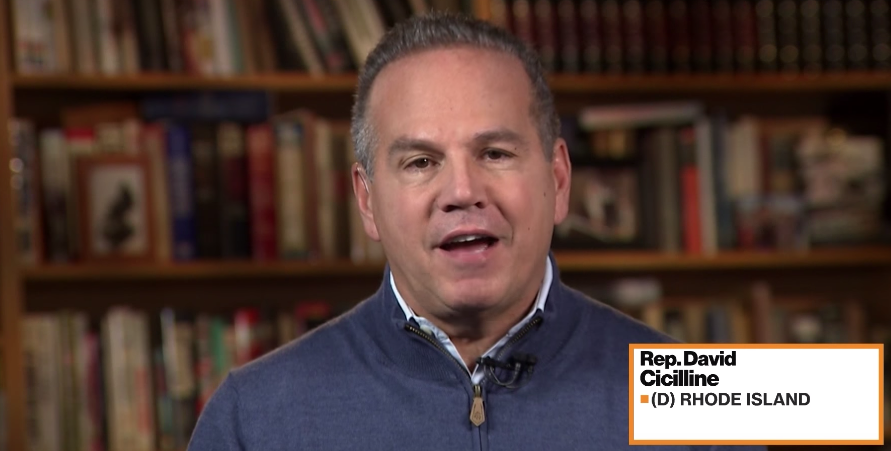The news media have figured out a way to fight the big social media companies — they want Congress to let them “collude against Google and Facebook,” according to Buzzfeed News.
The site reported that publishers are uniting behind the Journalism Competition and Preservation Act:
In March, Rhode Island Democrat Rep. David Cicilline — the future chair of the antitrust subcommittee — introduced the antitrust “safe harbor” bill, putting the proposal front and center as tech leviathans now prepare to face what is sure to be a barrage of hearings about privacy, election interference, algorithmic changes, and more.
The antitrust “safe harbor” bill being discussed is a response to the exponentially rising power of big tech companies acting functionally as a monopoly on the flow of information. As Facebook and Google have risen to power (they together have been referred to by many as a “duopoly”) have a firm grasp on 56.8% of the digital advertising market according to eMarketer. This meteoric rise has made it extremely hard for smaller outlets to remain viable or even gain a foothold in the modern market.

Newspapers are running op-eds and media executives are lobbying their representatives as a new Congress takes shape. What they’re fighting for is permission, currently restricted by federal antitrust rules, to team up to negotiate the terms by which their content is distributed by Google and Facebook, among other demands surrounding things like customer data….
The safe harbor law would lift antitrust restrictions for news outlets for four years so that they could negotiate with Facebook and Google, which are implicitly but not directly named in the proposed legislation.
The issue at hand here is that these antitrust restrictions were originally put in place to prevent monopolies, but as time and technology have moved on, the “duopoly” of Facebook and Google has completely altered the nature of the market. This bill would allow multiple news companies, once forbidden from working together, to unite and negotiate collectively against tech giants. News Media Alliance board member and Independent Journal Review member Alex Skatell observed that “The spirit of the law was to prevent the consolidation of influence over the information that reaches us. It’s laughable it hasn’t been updated to reflect where we are today.”
On the other hand, while enmity between Republicans and the media is at an all-time high, conservatives have their own reasons for wanting to see big tech regulated. Their support for this bill is highly dubious, but the resentment against big tech acting as a monopoly is an increasingly bipartisan reality
Both liberals and conservatives are increasingly rallying to regulate big tech, but for radically different reasons. The New York Times itself recently lamented the fact that “The alliance between Democrats and Silicon Valley has buckled and bent this year,” though notably this wasn’t because of its unethical data practices or censorship, but rather because it “allowed hateful speech, Russian propaganda and conservative-leaning ‘fake news’ to flourish.” The piece confessed that it sees Big Tech as obligated to curate public forums for debate and opinion in favor of left-wing initiatives and viewpoints.
MRC TechWatch noted the irony that the same Times article that claimed Facebook surrendered to “misplaced Republican criticism about bias” openly acknowledges this bias that they expect Facebook to serve explicitly left wing political initiatives.
Both Sen. Ted Cruz (R-TX) and Brad Parscale of the Trump campaign have voiced support for prosecuting big tech based upon Section 230 of the 1996 Communications Decency Act, which designates social media platforms strictly platforms rather than publishers. This designation is important because it makes countries immune to legal prosecution for illegal activity that happens on their websites. The purpose of this was to ensure that they serve as a platform for public debate. If they don’t behave as platforms for vigorous public debate, then they risk being stripped of this immunity.





